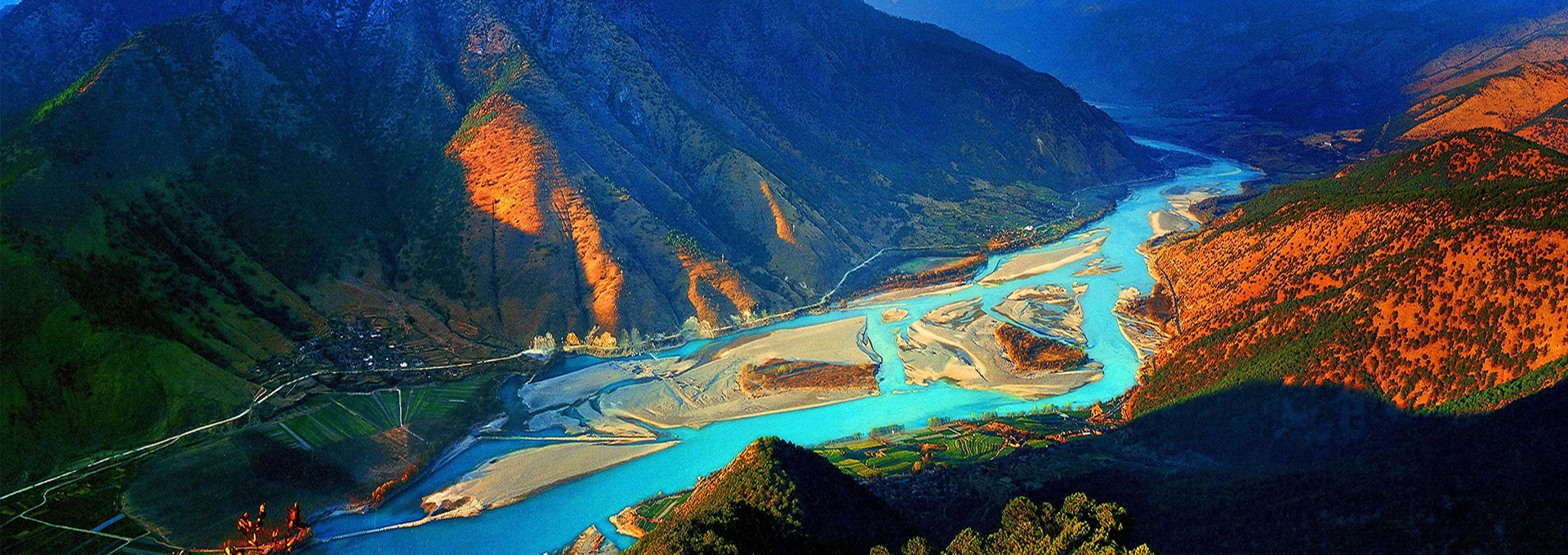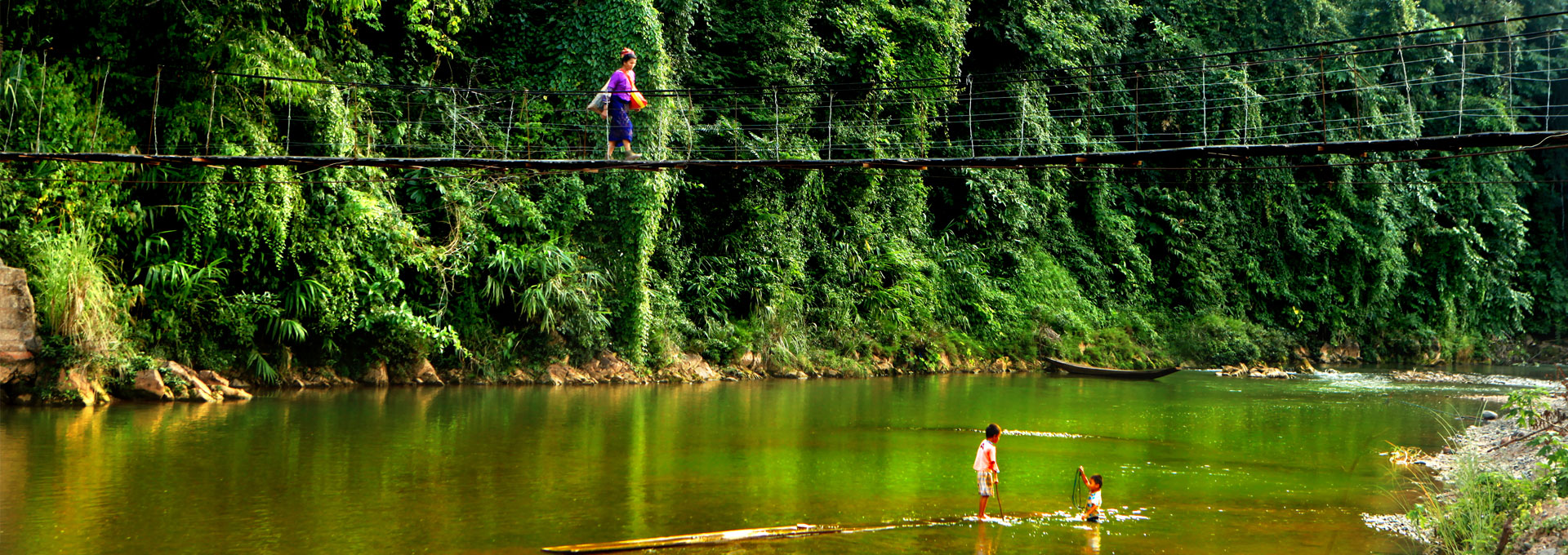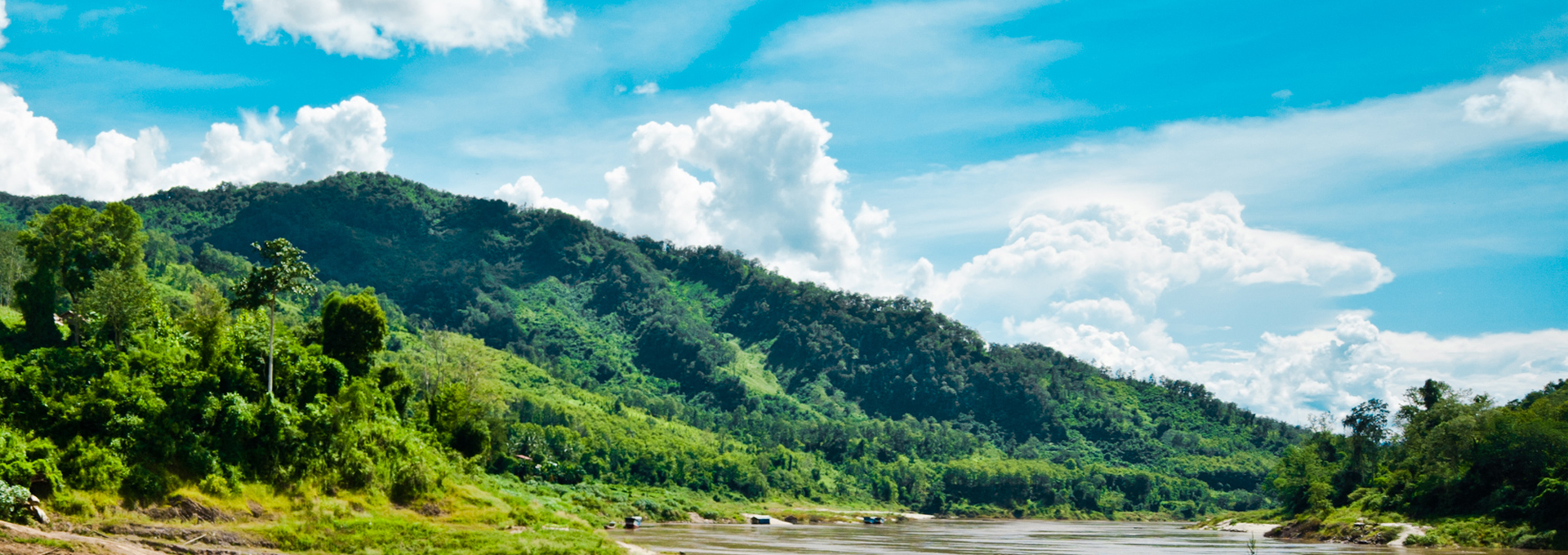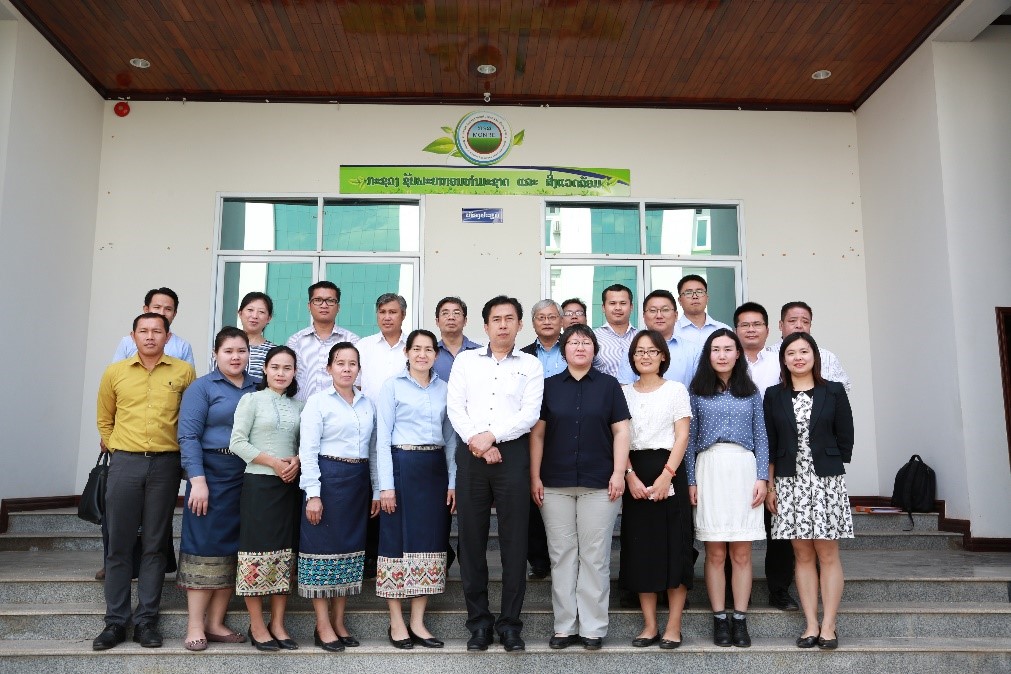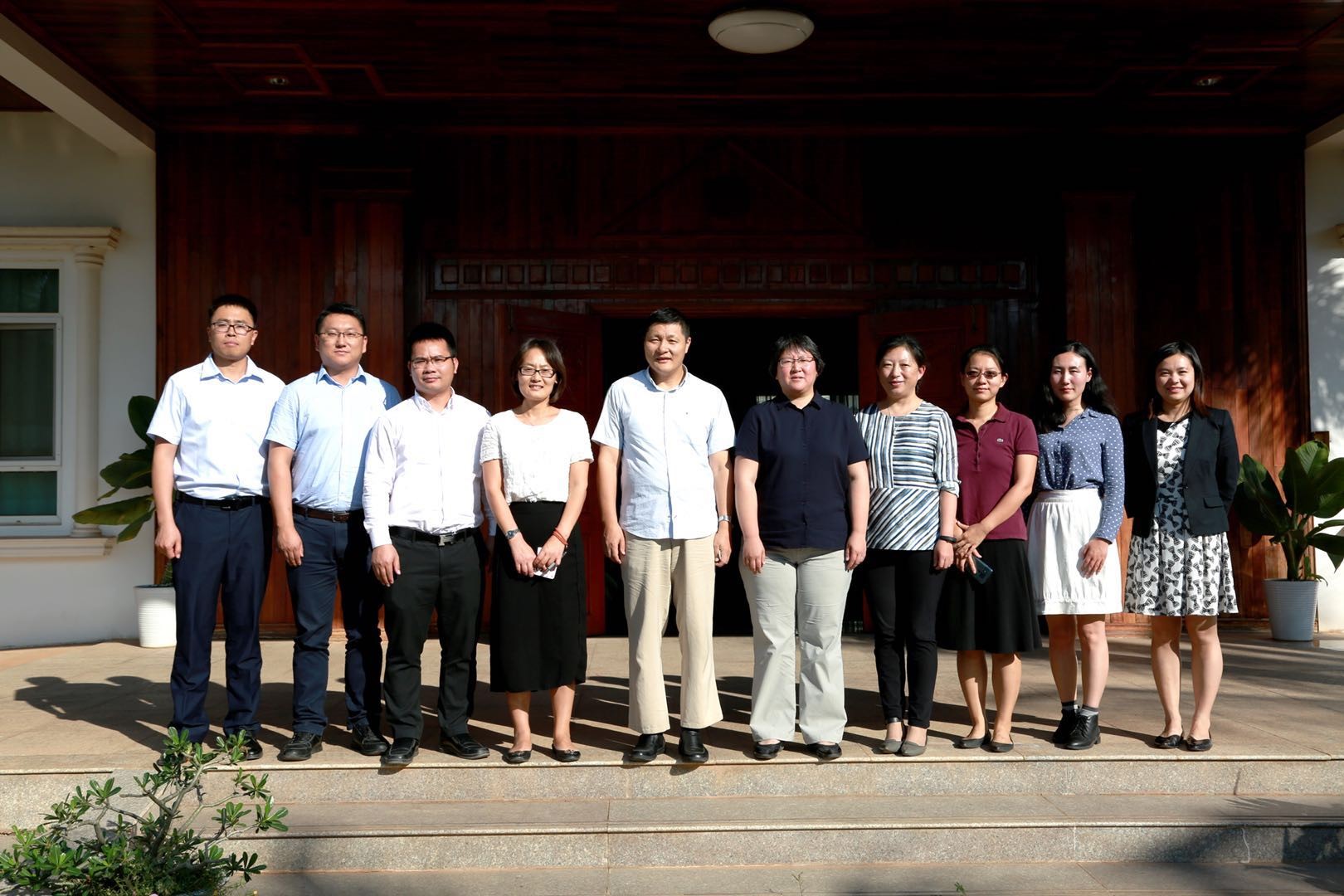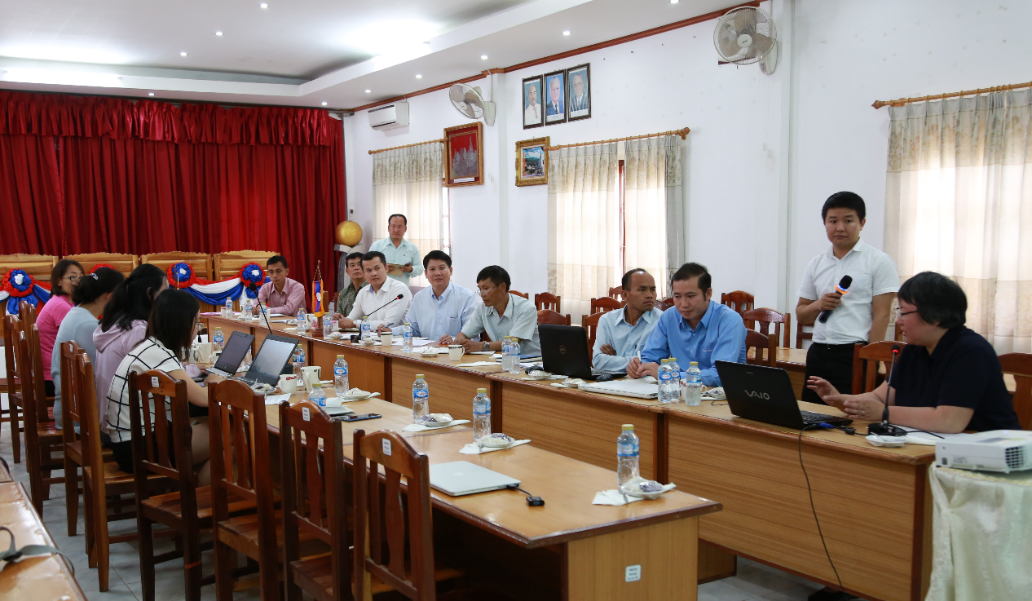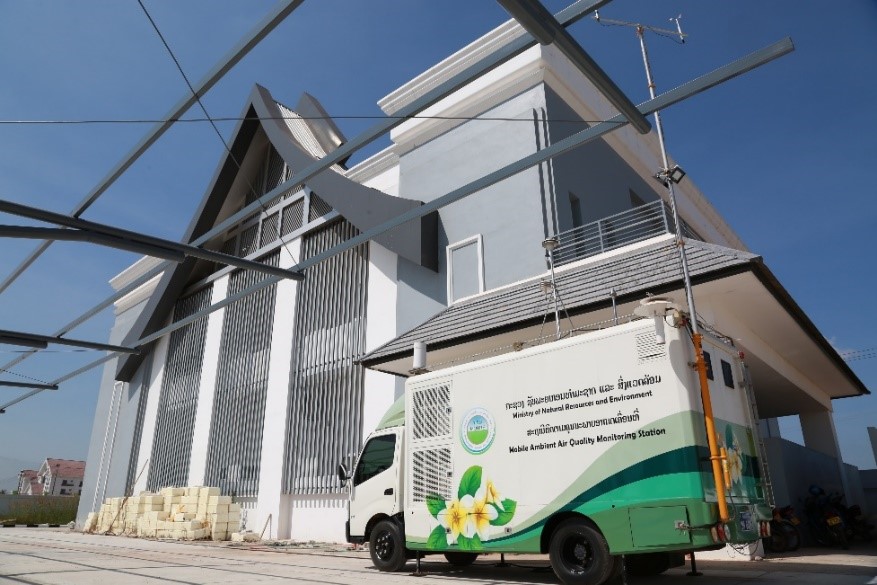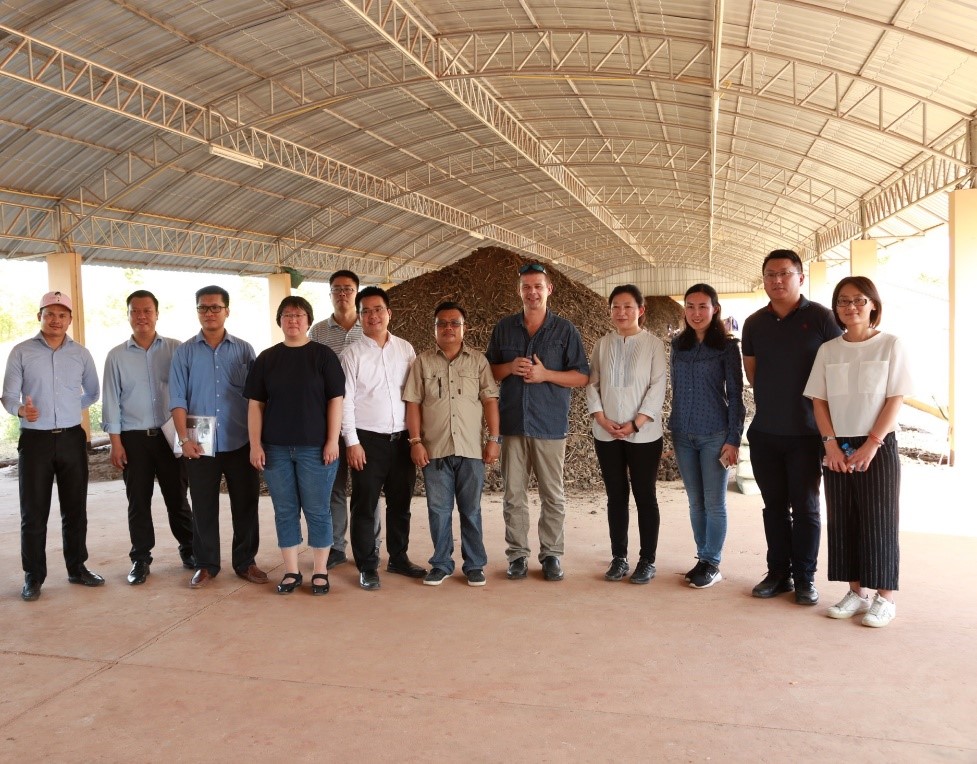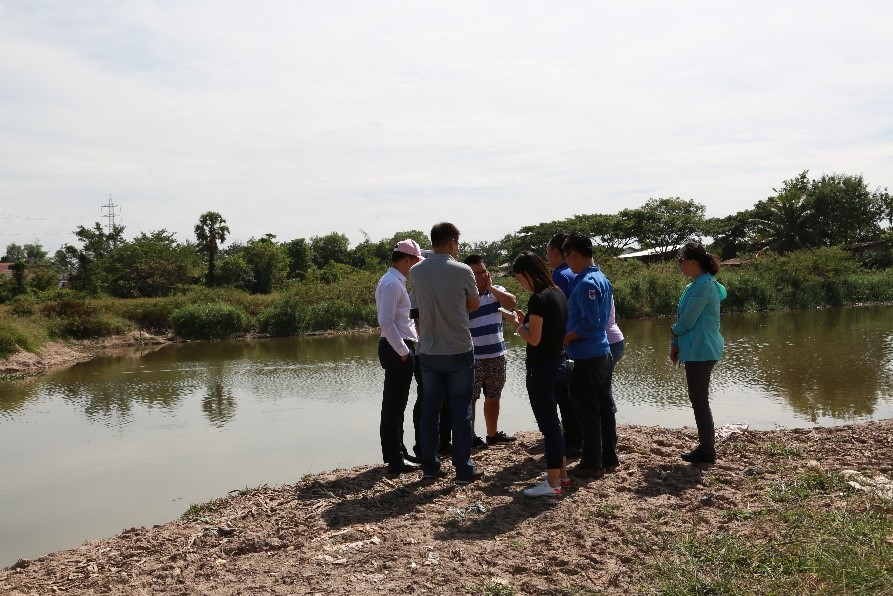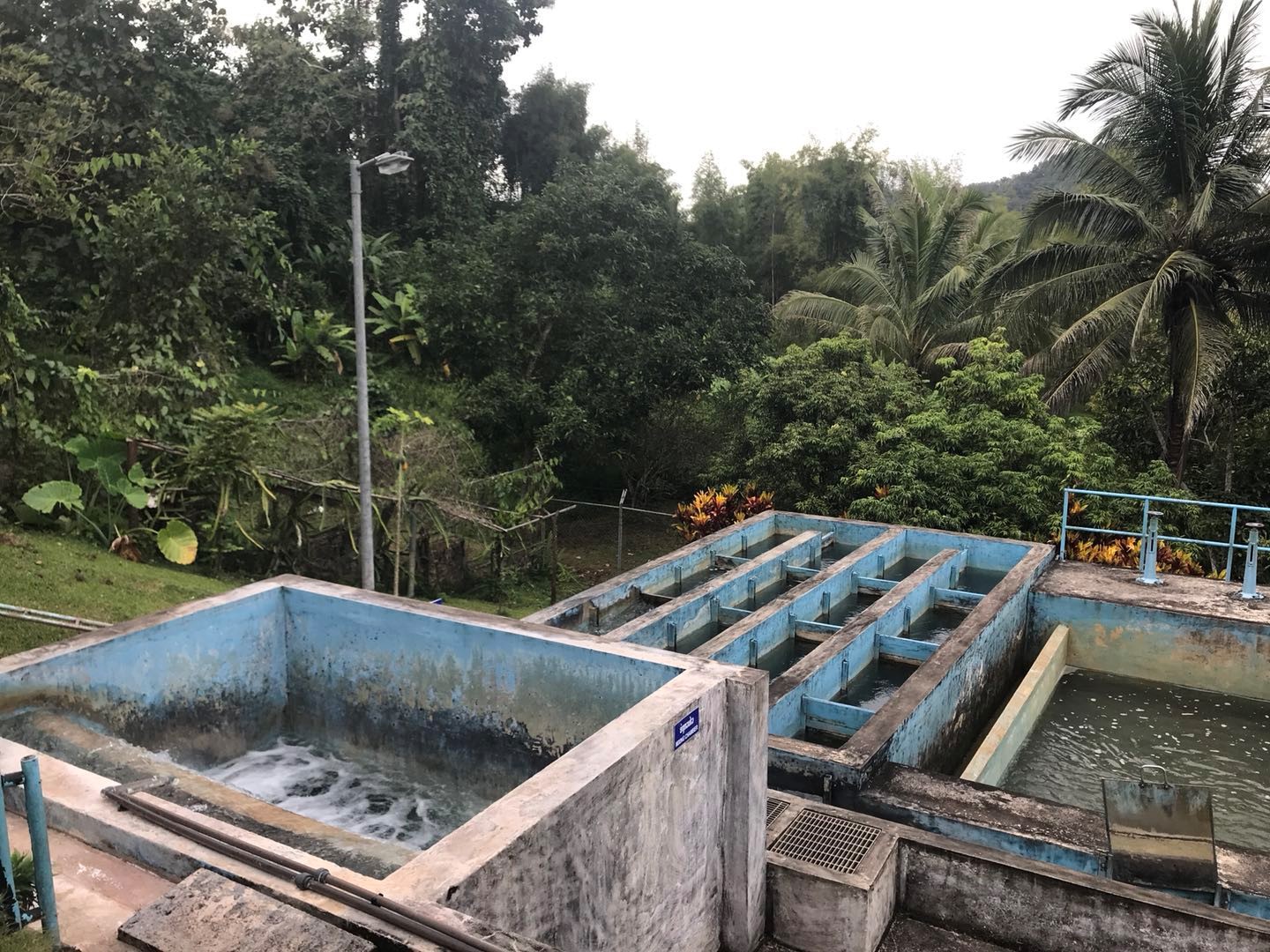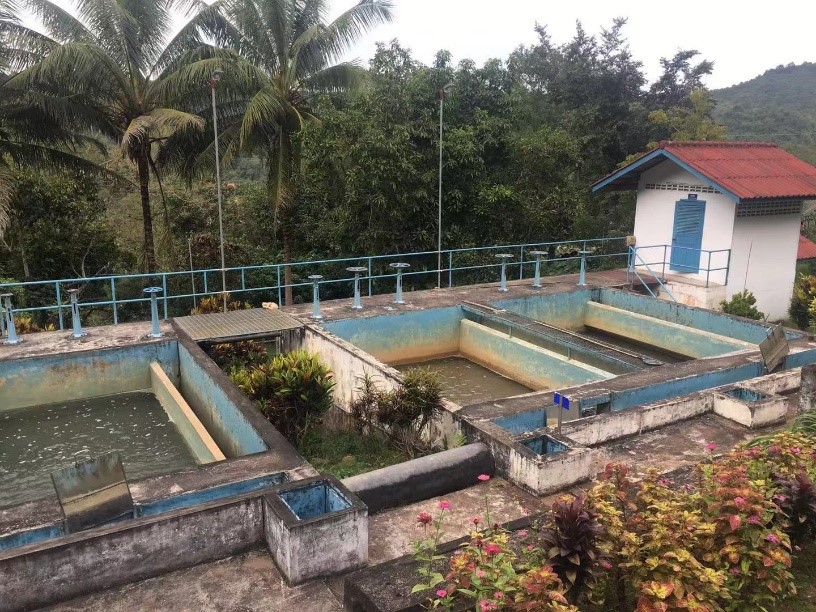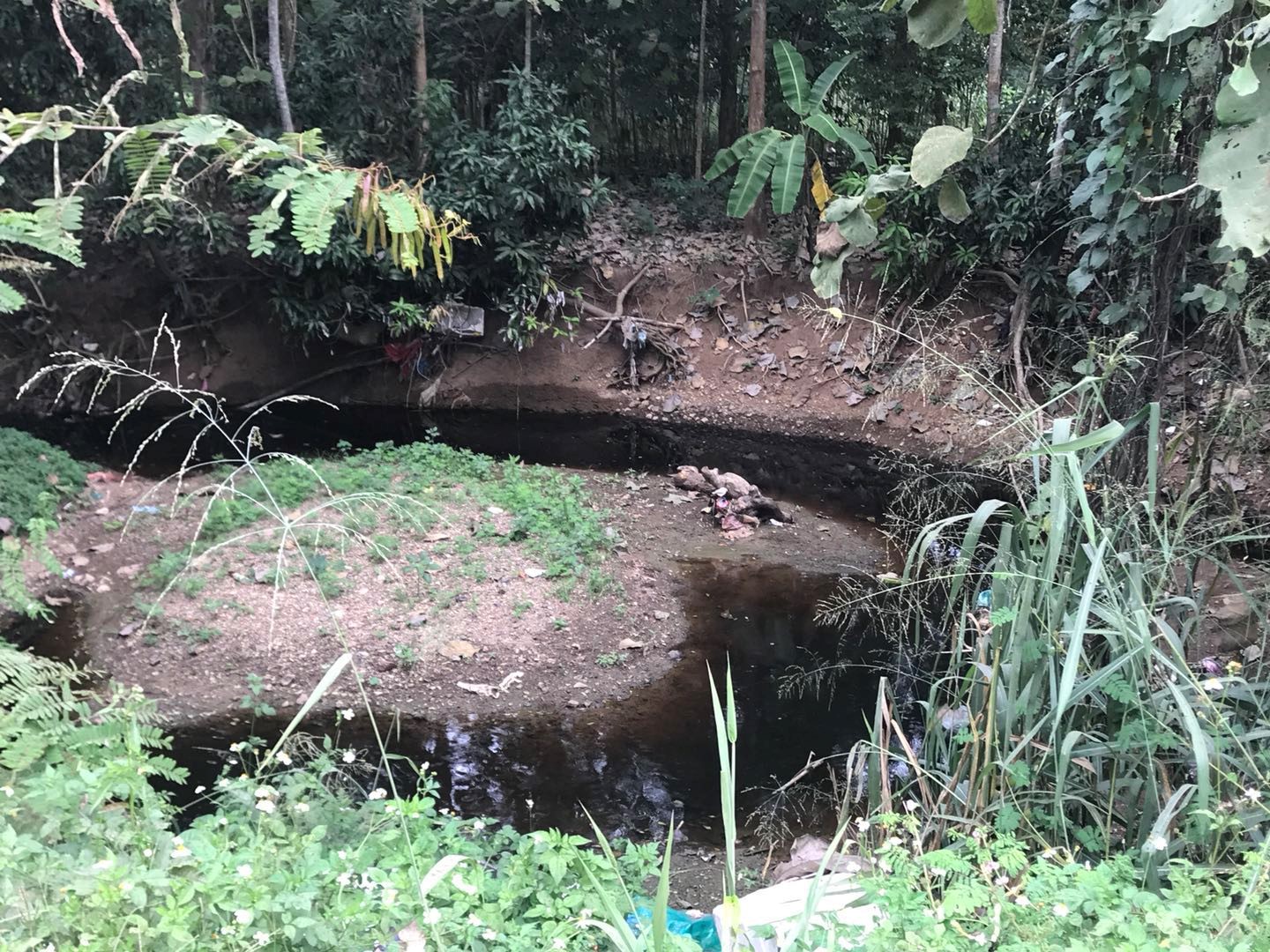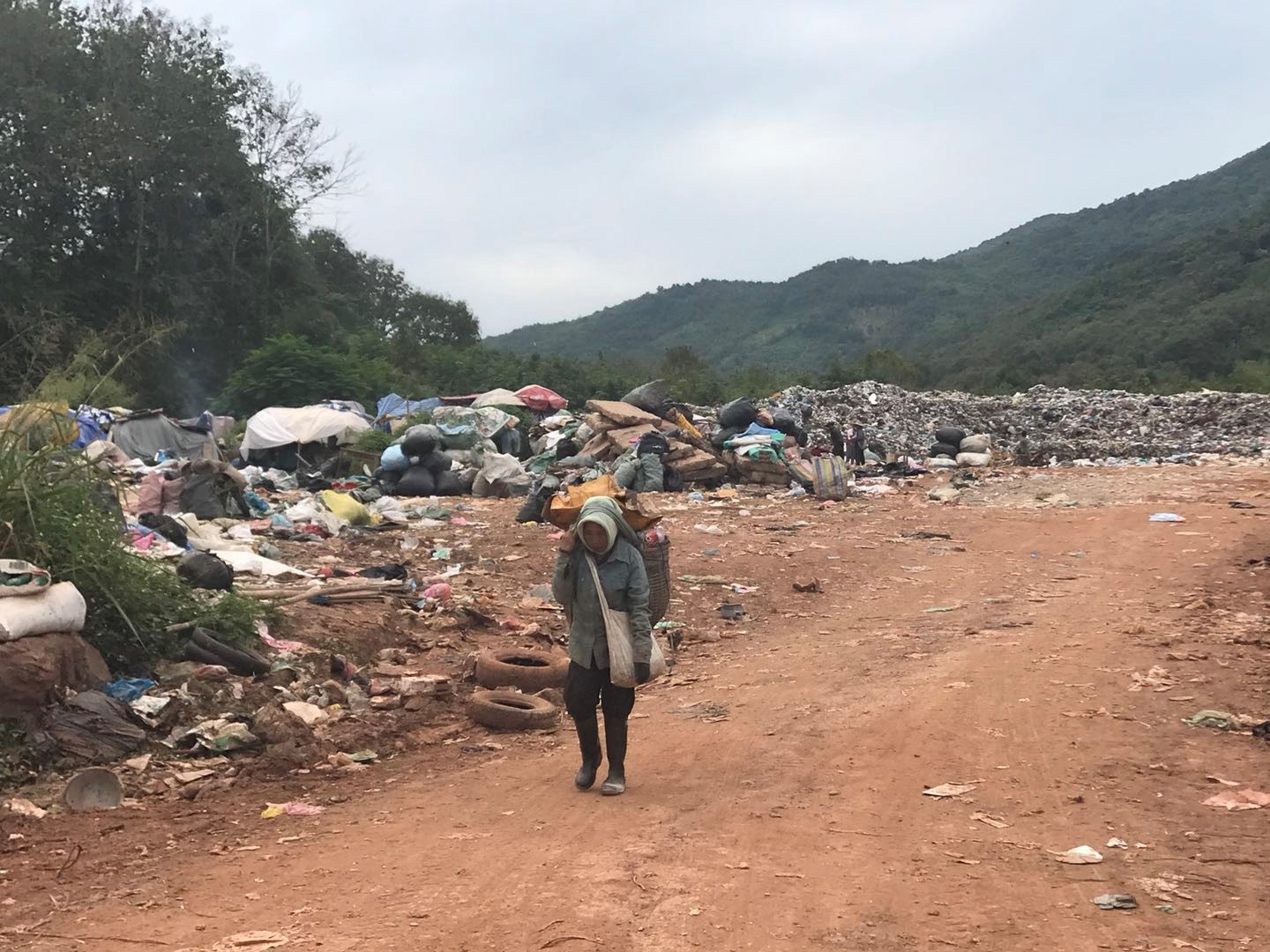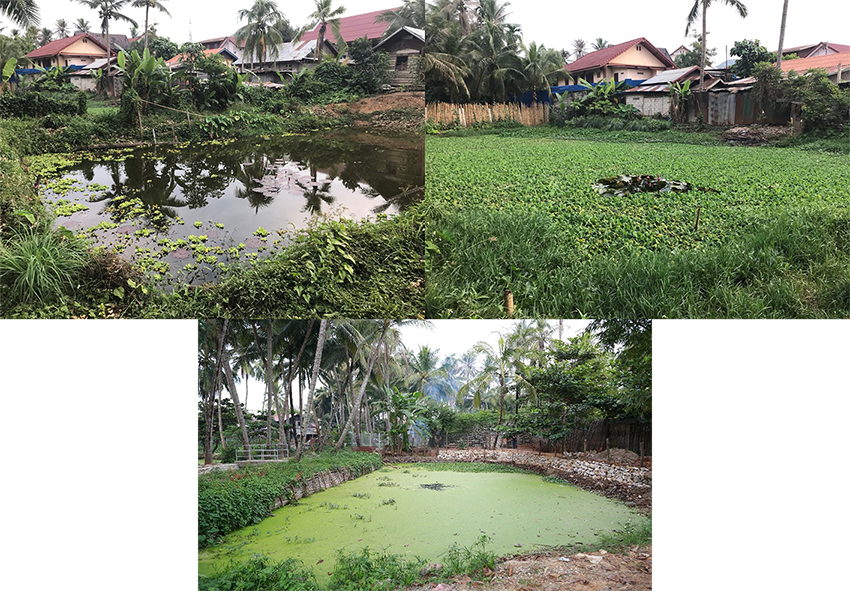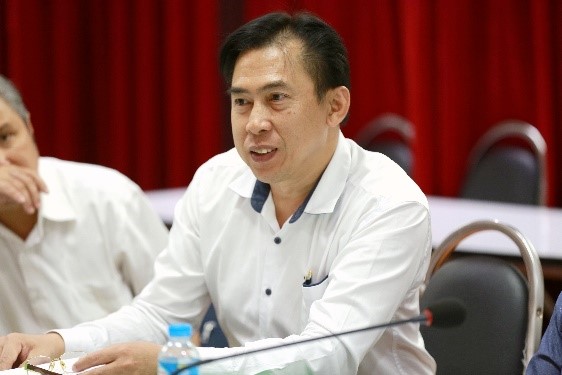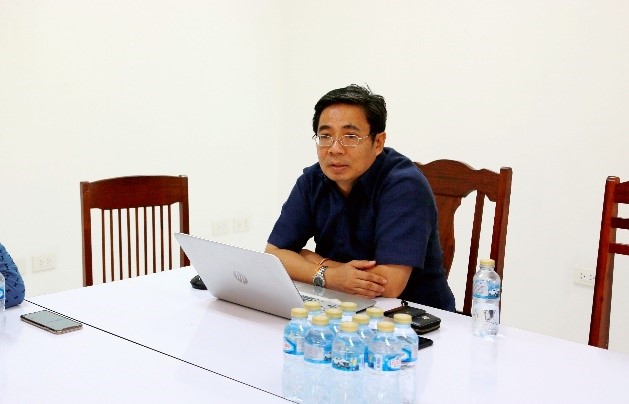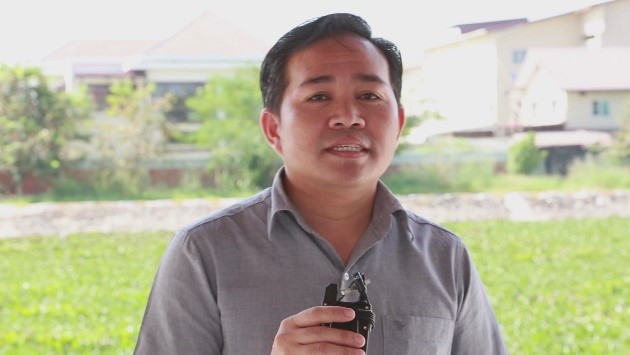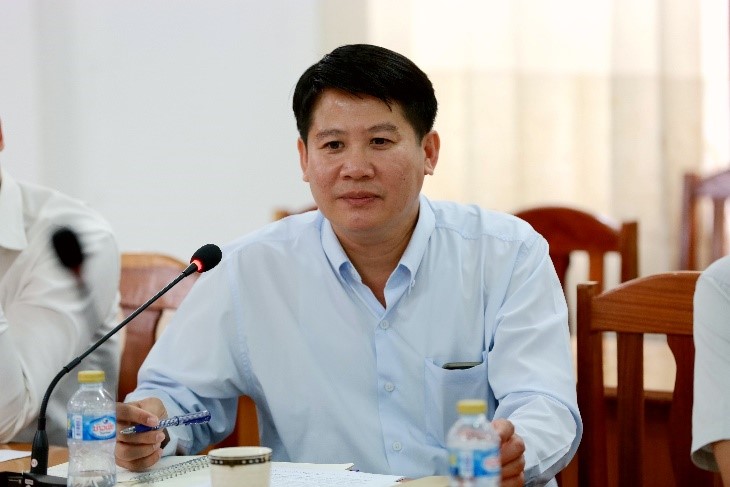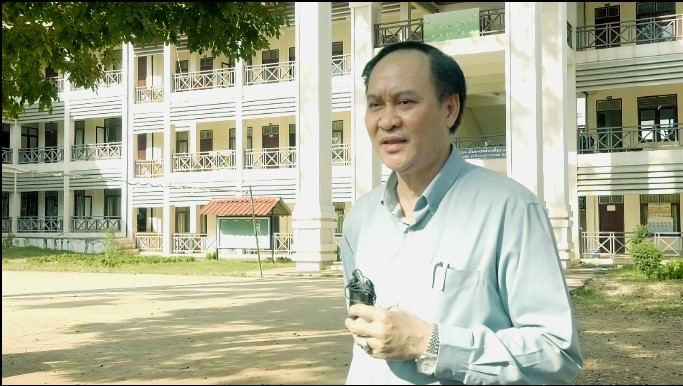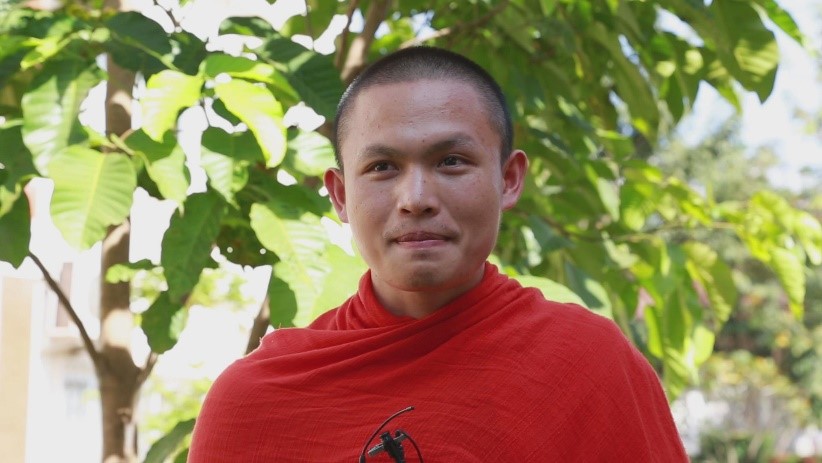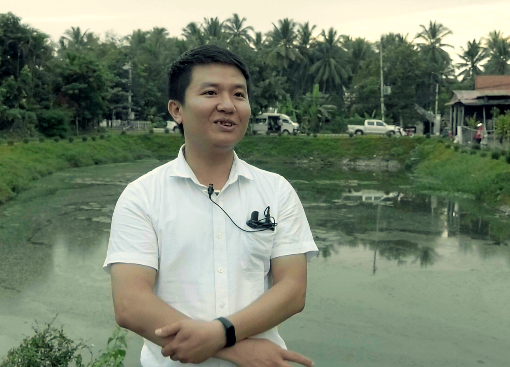In July 2018, leaders of the Ministry of Ecology and Environment of the People’s Republic of China (MEE) visited Laos and signed the Memorandum of Understanding on Ecology and Environment Cooperation between the Ministry of Ecology and Environment of the People's Republic of China and the Ministry of Natural Resources and Environment of the Lao People's Democratic Republic (MONRE) and the Action Plan on Ecology and Environment Cooperation between MEE and MONRE (2018-2022) to reach a consensus on cooperation in specific areas. To implement relevant consensus and requirements for deliverables, the Lancang-Mekong Environmental Cooperation Center (hereinafter referred to as the Center) conducted investigations in Laos from November 5 to November 10, 2018.
During the investigation, the delegation held discussions with Chinese Embassy in Laos, the Ministry of Natural Resources and Environment of Laos and the Ministry of Natural Resources and Environment of Luang Prabang Province, and discussed in depth of the situation of China-Laos environmental cooperation and the implementation plan of related deliverables, priority areas for cooperation and future cooperation approaches.
Visiting and discussion with the Ministry of Natural Resources and Environment of Laos
Visiting Chinese Embassy in Laos
Visiting and discussion with the Ministry of Natural Resources and Environment of Luang Prabang Province
The delegation also visited the planning site of Houayang-Dongmakkhai Botanical Garden in Vientiane City, the automatic monitoring system and mobile air quality monitoring station of the Institute of Natural Resources and Environment of the Ministry of Natural Resources and Environment of Laos, the excrement and sludge management facilities in Nahai Village in Vientiane City, the sewage discharge system and natural sewage treatment system around Thatluang Reservoir, the garbage landfill facilities in Luang Prabang City, the waterworks and sewage treatment system and Nam Khan River Reserve, and made a specific investigation on the siting of the demonstration projects of air environmental monitoring in Vientiane and Luang Prabang City and the China-Laos clean water plan. The delegation also held a work discussion with the Faculty of Science and Technology of the National University of Laos on issues such as promoting China-Laos environmental education and environmental capacity building.
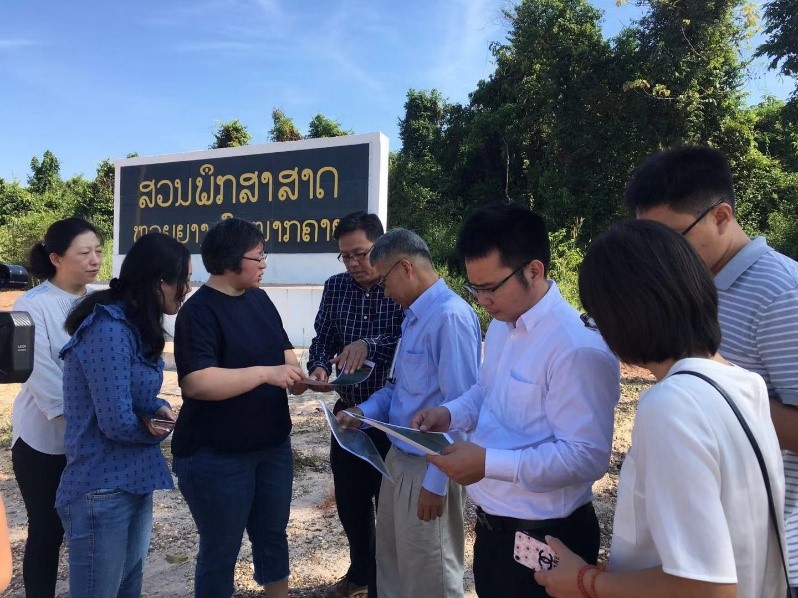
The delegation investigated the planning site of Houayang-Dongmakkhai Botanical Garden in Vientiane City
Environmental Monitoring Station of the Meteorological and Hydrological Department MONRE
The delegation visited the fecal sludge management facilities in Nahai Village, Vientiane City
The delegation investigated the sewage discharge system and natural sewage treatment around Thatluang Reservoir in Vientiane City
Phouphueng Treatment Plant in Luang Prabang City
8th Kilometer Landfill, Luangprabang City
Mano village's wastewater treatment ponds, Luang Prabang City
The investigation was designed to get more knowledge about the current situations, challenges and practical needs of environmental sustainable development in Laos, which laid a solid foundation for further implementation of relevant consensus and requirements for deliverables and for efficient promotion of the demonstration projects of China-Laos environmental cooperation. Moreover, in-depth exchanges were carried out with relevant organizations on specific areas of cooperation.
Interview record:
Souksamone PATHAMMAVONG, Department of Planning and Cooperation, DPC, MONRE
"The delegation of Lancang-Mekong Environmental Cooperation Center has brought many good ideas and suggestions to us. We hope that we can continue to strengthen cooperation to help Laos achieve sustainable environmental development in the future."
Virasack Chundara, Natural Resources and Environment Research Institute, NRERI, MONRE
"Air quality monitoring is a relatively new area for Laos. At present, Vientiane has only one fixed monitoring station and one mobile monitoring vehicle. And the range of monitoring data is not large and far from meeting the demand. "
Korlahanh SENBOUTTALATH, Head of Water Supply and Environment Unit, Department of Public Works and Transport Vientiane Capital, Ministry of Public Works and Transport
"Due to financial and technical constraints, Vientiane's water treatment facilities are not complete and water pollution in certain regions is serious. As for the government, we should strengthen cooperation with various parties and attract more funds and technologies for sewage treatment. Especially, China's experience in sewage treatment is of great value to us. "
Katthiya VANNASACK, Luangprabang Provincial’s Nature Resources and Environment Department
"Laos is in a good natural condition, but there are still some environmental pollution problems, especially in Luang Prabang province. Hydropower construction projects, mineral exploitation and tourism have resulted in a large amount of untreated sewage being discharged directly into rivers. Therefore, we should strengthen cooperation with the government and non-governmental organizations, especially the Lancang-Mekong Environmental Cooperation Center, and provide more support in environmental governance capacity building, pollution monitoring and sewage treatment."
A teacher of the Faculty of Environmental Science of the National University of Laos
"Laos is still a developing country. It is difficult to protect the ecological environment by Laos alone. We need to work together with neighboring countries to protect the Mekong River and our ecological environment by introducing advanced environmental governance technologies and projects."
A sophomore student at the National University of Laos
"I hope my country will have better environmental governance facilities in the future. Sewage from households and factories should be treated before being discharged, and the emission of car exhaust should also be controlled."
Representative of the Luangprabang Provincial’s Nature Resources and Environment Department
"I'm originally from Louangphrabang. I once studied in Hunan University in China, majoring in environmental science. China has provided us with various scholarship programs, giving me the opportunity to learn more advanced environmental standards and technologies and bring them back to Laos. We understand that Lancang-Mekong Environmental Cooperation Center will provide capacity-building training for the natural resources and environment departments in Luangprabang Province. We hope there will be more such projects to help Laos improve its environmental governance capacity. "
